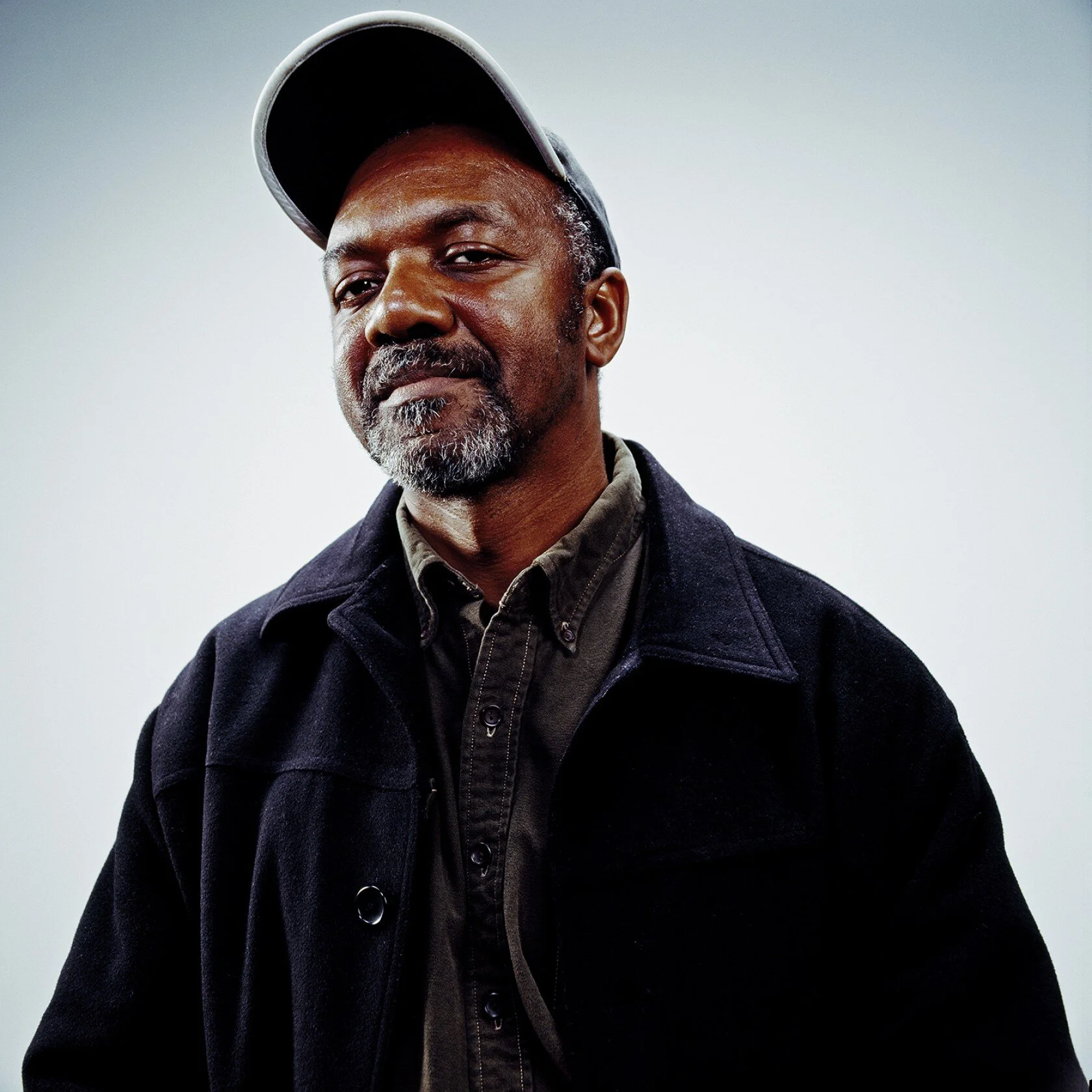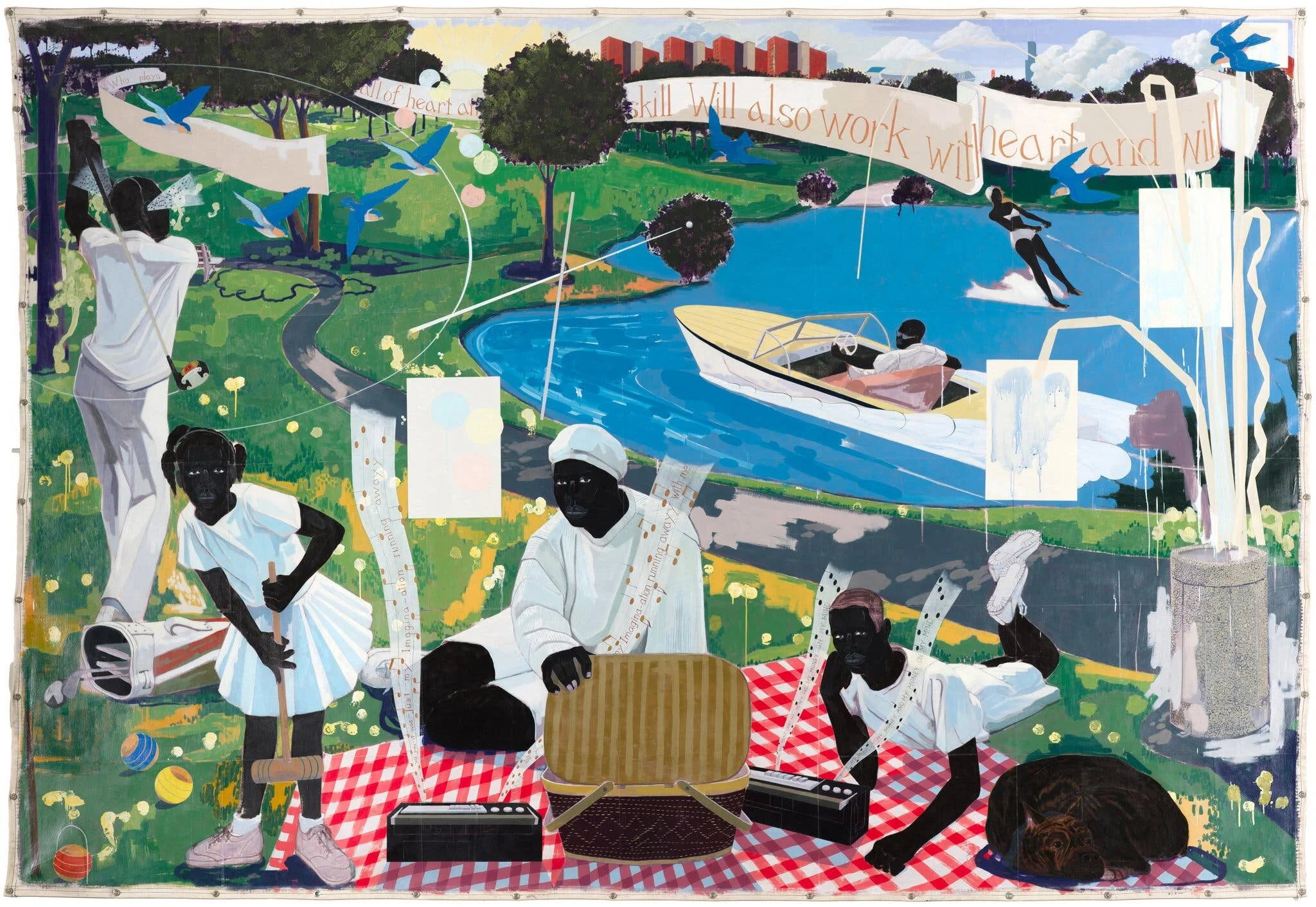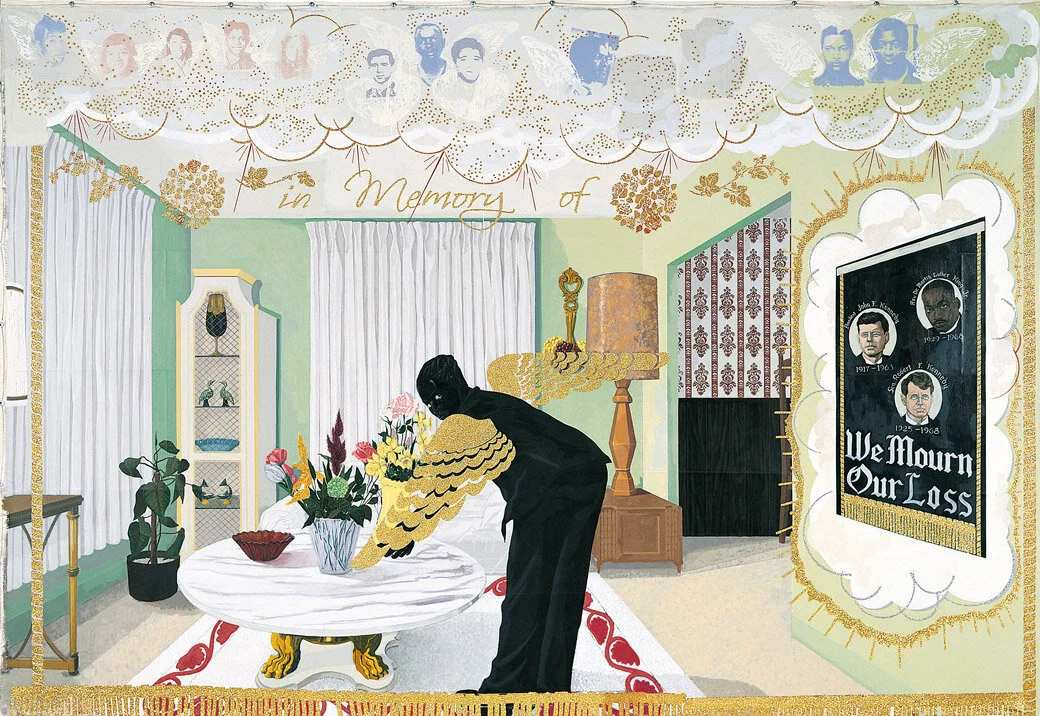KERRY JAMES MARSHALL
Kerry James Marshall was born in 1955 in Birmingham, Alabama, amidst the penultimate racial disparities that would lead to the Civil Rights Movement.
Marshall’s works are often in conversation with the Western art history.
His signature “rhetorical black” figures are used to compose Black figures in scenes where they simply exist and are “being”.
On the left: Past Times (1997)
His most recent series references John James Audubon’s nineteenth-century magnum opus, The Birds of America. This is an extension of Marshall’s “counter-archive” which brings the Black figure back into the narratives of the Western canon.
On the right: Black and part Black Birds in America: (Grackle, Cardinal & Rose-breasted Grosbeak) (2020)
Marshall received his BFA at Otis Art Institute in 1978. He is represented by Jack Shainman gallery in NYC.
He now lives and works in Chicago, Illinois.
He has exhibited institutions such as The Art Institute of Chicago; Los Angeles County Museum of Art; The Metropolitan Museum of Art, New York; Museum of Contemporary Art Chicago; The Museum of Modern Art, New York; National Gallery of Art, Washington, DC; San Francisco Museum of Modern Art; The Studio Museum in Harlem, New York; Walker Art Center, Minneapolis; and the Whitney Museum of American Art, New York hold his works in their permanent collection.
School of Beauty, School of Culture (2012)
Souvenir I (1997)
Marshall refers to himself as a history painter; however, it’s important to distinguish his paintings do not to rewrite or retell history akin to a traditional historian's role.
Rather, his works are labor of forcing the audience to confront the consequences of the continued absence of black influence within the Western canon.
“We could not refer to our role in art history, because we did not play a role in that history.”
— Kerry James Marshall







